Ortlieb Fuel-Pack
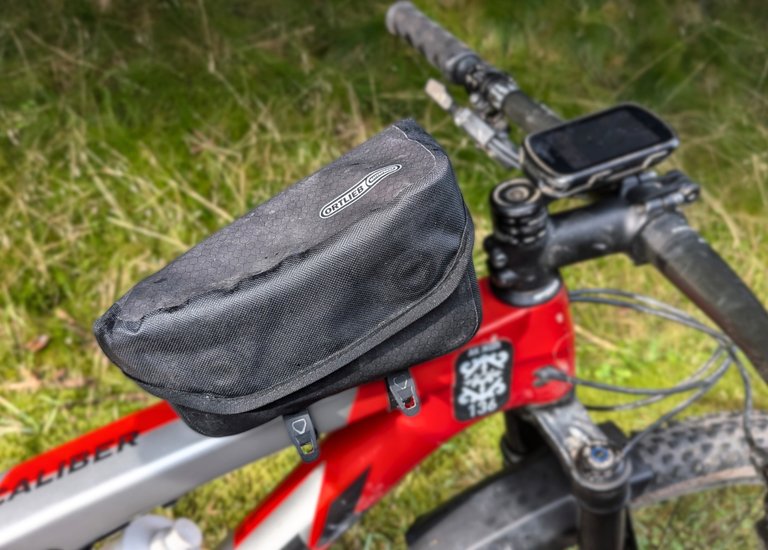
The Fuel-Pack top tube bag from Ortlieb weighs 160 grams (my scale shows only 154 g and ~120 g without the rubber straps) and offers a one‑litre capacity. The closure is magnetic and can easily be operated one‑handed. You attach it either with mounting bolts or two rubber straps that keep the bag locked in place. At the widest point it measures 21 cm, at the narrowest about 6–7, and my knees never touch it. Inside there is a single mesh pocket for easier organisation.
🚿 Waterproofness
According to the specs it "only" has an IP53 water resistance rating, which is because to meet a higher limit it would have to be protected from water spraying from every direction. Given the magnetic roll/snap construction it cannot be protected from water from below, which in rain does not really matter. I tested the Fuel-Pack mainly during the Silk Road Mountain Race in Kyrgyzstan, where it rained (and snowed) on me for several days, and I had no issue with waterproofness. The contents stayed dry.
Just be careful: if you lay the bike on its side, for example when camping, water can get in. You can solve it by leaning the bike vertically, or laying it down on the other side.
🔩 Mounting
The bag arrives prepared for bolt-on mounting. If, like me, you don’t have the mounts, rubber straps are included. On my MTB frame I had the issue that I could not place the bag as far forward as I wanted because the rubber strap is not long enough. Still, my knees do not touch the bag—though it’s close.
The manual mentions you can solve this with an extension strap, but it is not included. And count on 10 extra grams 😉
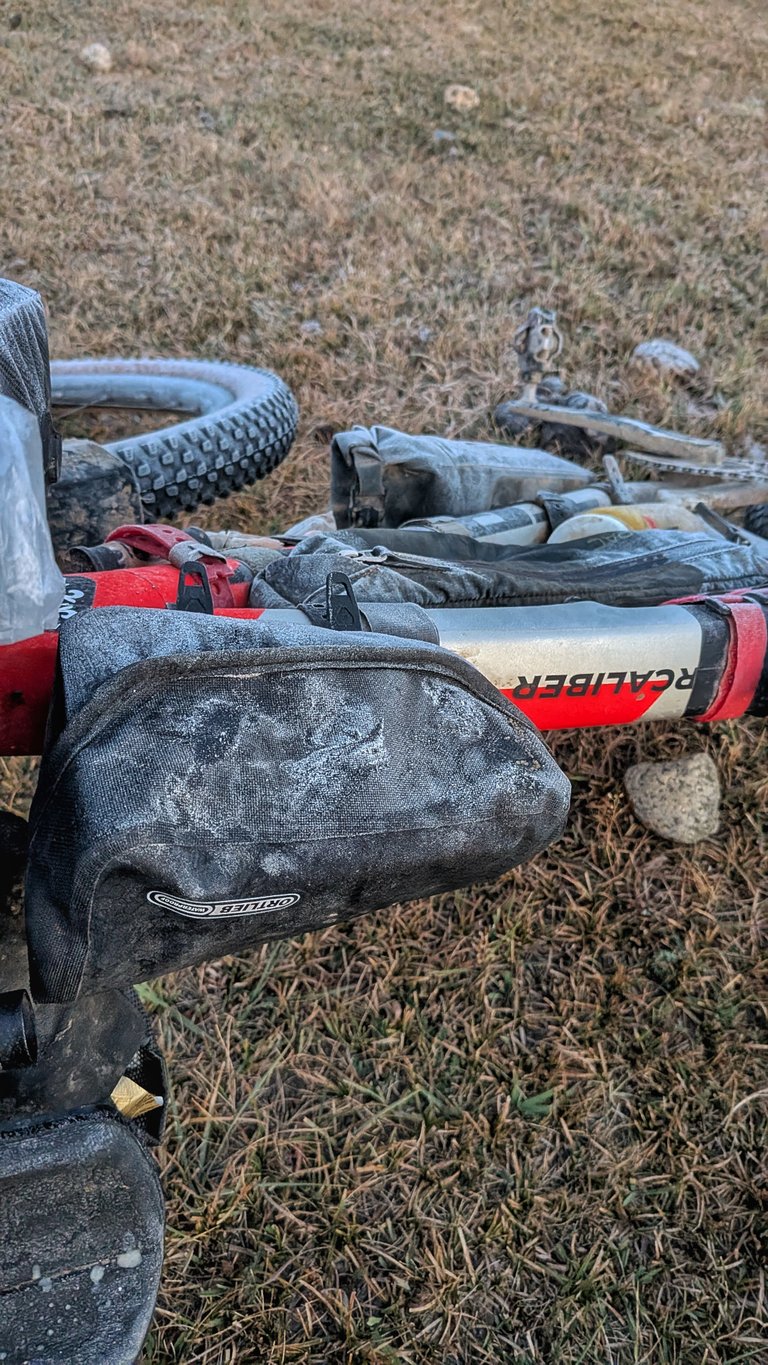
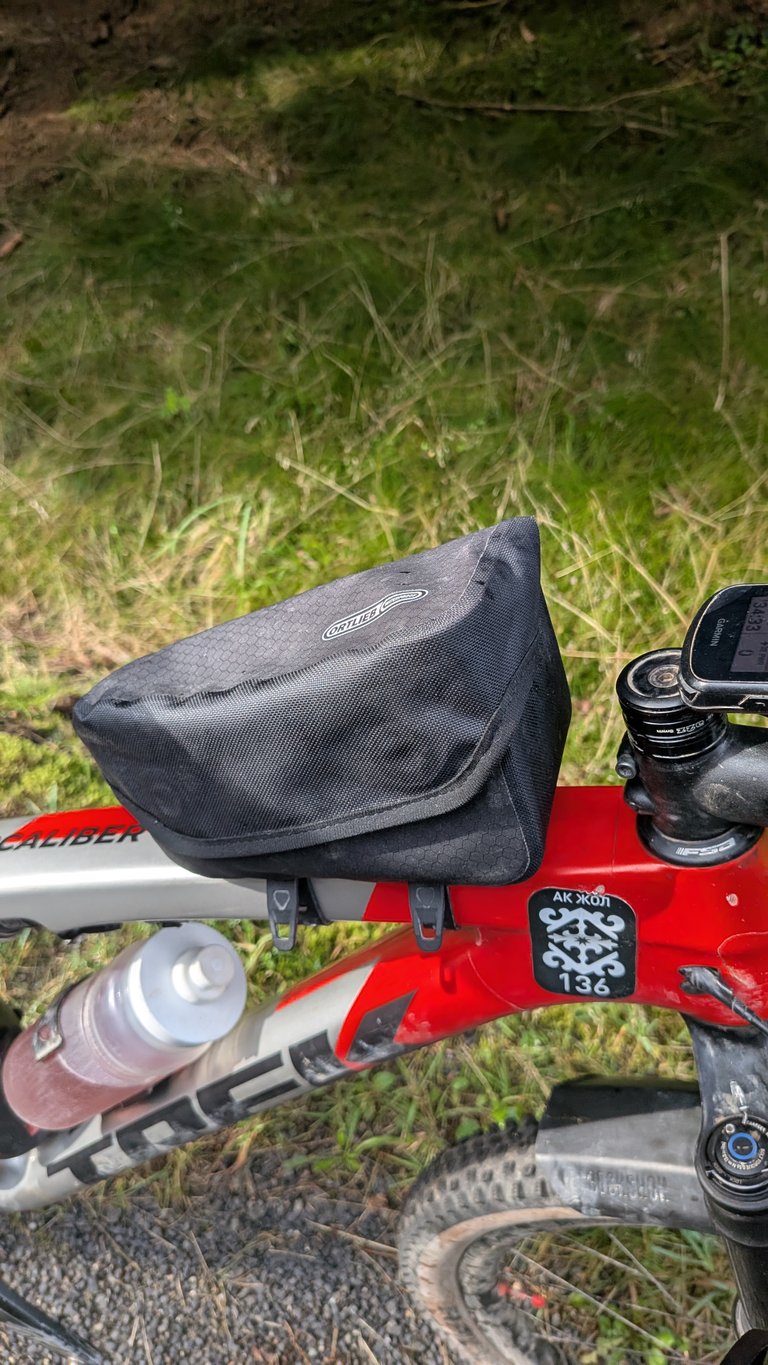
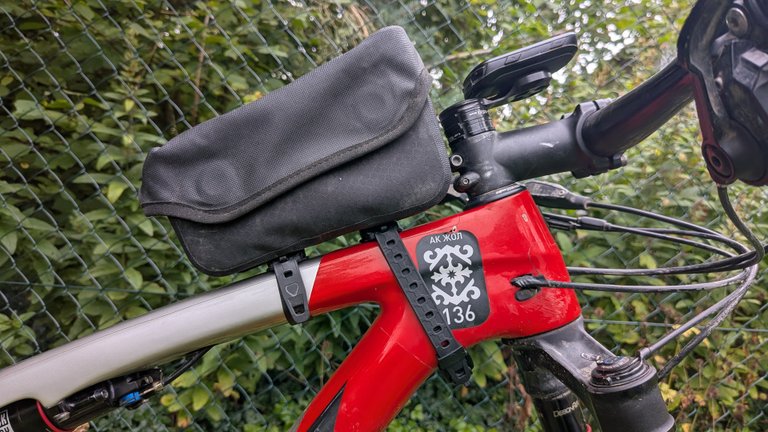
I always struggle with securing the bag because threading the rubber strap through is quite hard. It probably depends on frame thickness. Once done, the bag is really rock solid. To be precise – the bag body can wobble side to side, but its base does not move. Personally that doesn’t bother me. Much worse are bags that drift and need constant re‑centring.
Not using classic hook-and-loop has its advantages – you don’t have to worry about the frame getting scuffed by things inside the bag. With other bags I had the problem of a thin floor and the contents banging the frame. Here the bag does not directly touch the frame when using the rubber straps. Ortlieb still recommends adding a protective frame film.
Ortlieb also sells a separate “mounting set” that allows quick removal. The mounting set adds ~48 grams, which isn’t much. Quick‑release style systems are appearing more and more in bikepacking bags. What’s the point?
- You can mount the set on multiple bikes and move the bag between them. It’s compatible with the larger Ortlieb Toptube bag as well.
- I often carry electronics, power banks, and cables in this bag. When I go into a restaurant to charge, I don’t have to unpack everything – I just take the whole bag.
- Similarly, when I’m about to sleep – instead of carrying items one by one, I just grab the whole bag.
In Kyrgyzstan I would definitely have appreciated that. In the bivy I tossed individual items in and later searched each little gap. This way I’d have all electronics in one place and would have saved some time.
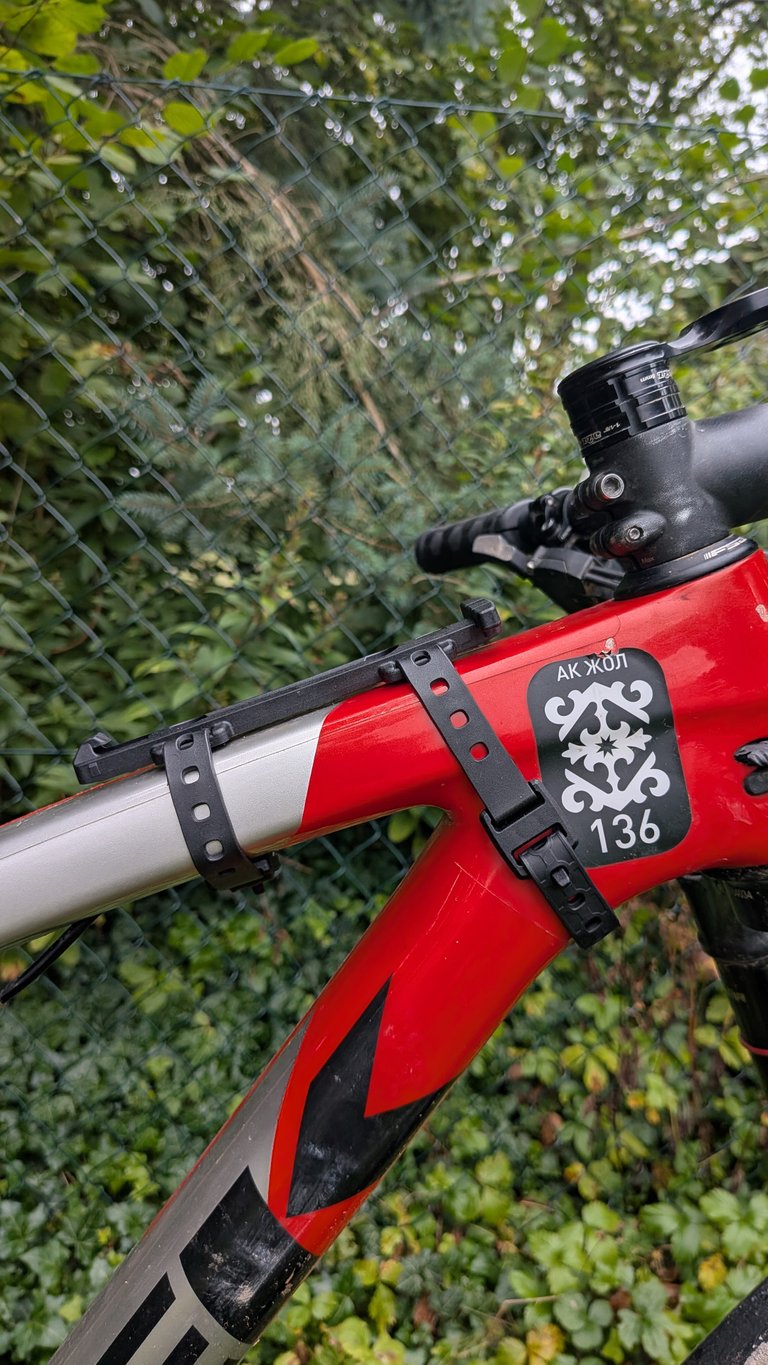
🧲 Magnetic closure
The magnetic closure works well. The magnets are strong and I have zero fear of it opening on its own. My only criticism – if I let the magnets “find each other” passively, it does not always close fully watertight. The top corner sometimes stays slightly open, so I’ve learned to close it intentionally by folding it over.
The advantage of the magnetic opening is that it opens really wide and things are easy to grab. At the same time there’s the risk something could fall out. So I am more careful than with zipped bags, which are better protected in that regard.
🗄️ Capacity
The internal mesh pocket is great. I kept my power bank in it. Thanks to better vibration damping I’m less worried about ports loosening. Use it with a 90° cable and everything fits nicely. There’s even enough space so that a Google Pixel 9a phone fits inside.
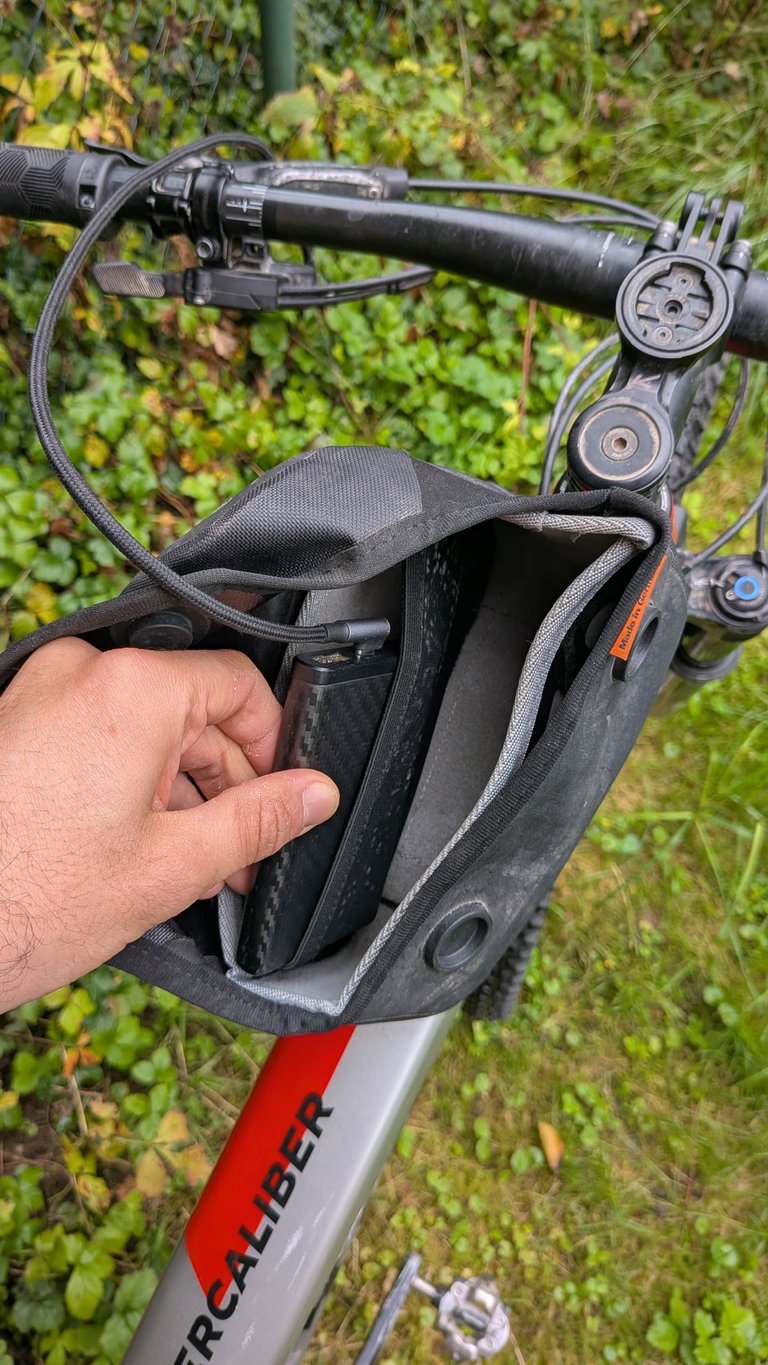
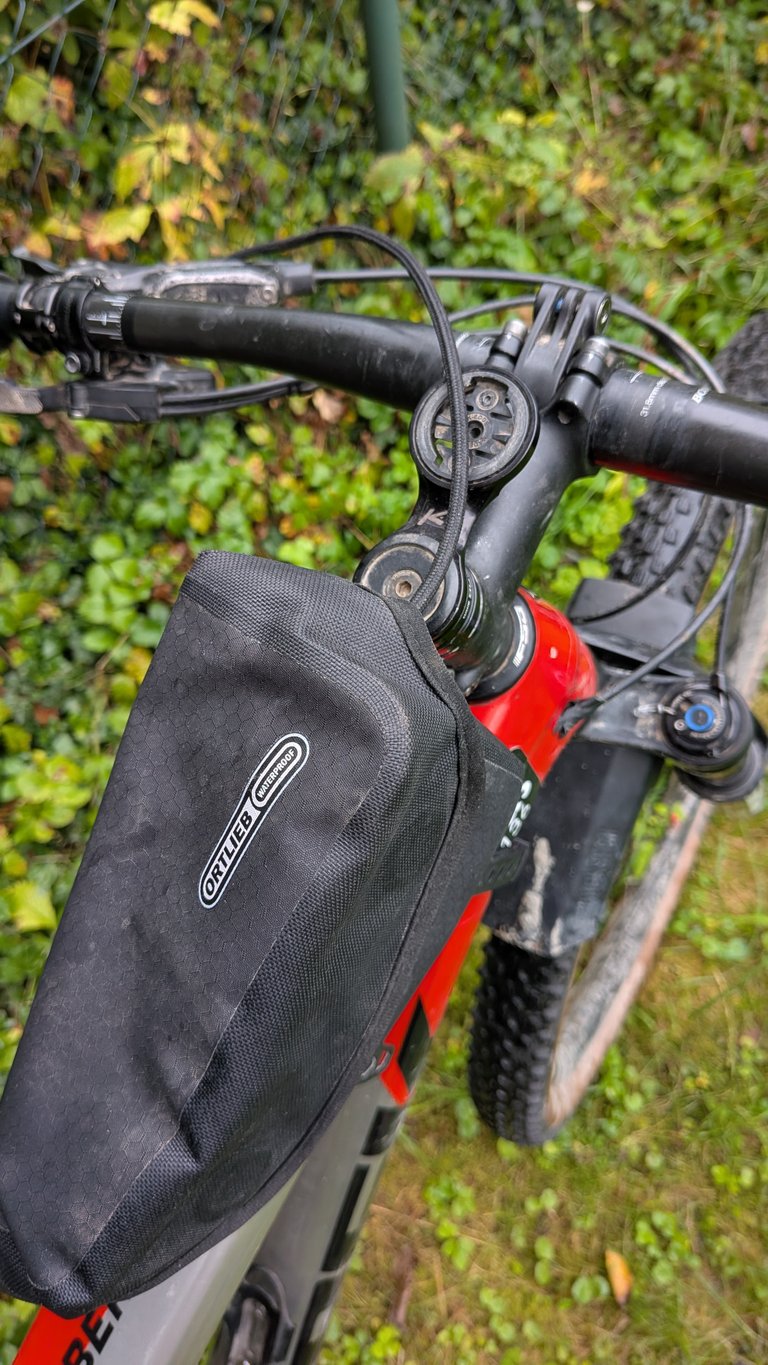
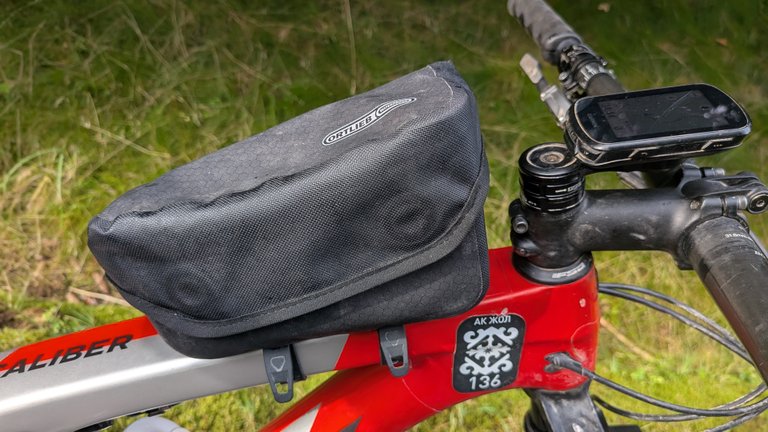
Its Corny index is 8 – i.e. you can fit about eight Corny bars in it. The last one is quite a tight squeeze.
📐 Summary
I really appreciate that it has no unsealed seams or anything similar, so it withstands heavy rain. Items don’t bang into the frame and the bag sits like it’s bolted on. If I don’t need anything from it, I almost forget it’s there.
It proved itself on the Silk Road. I just didn’t carry my phone in it, as I originally intended, because it was full of electronics and cables and when I pulled something out while riding, other things would fall out. So I carried the phone elsewhere and opened it only at rest.
With an MSRP of 1,690 CZK it’s among the pricier options, but thanks to the absence of a zipper it has a much higher chance of lasting longer, plus you get a five‑year warranty. It feels robust and after roughly 2,500 kilometres there are barely any signs of use. Even the mud cleans off fairly well with a brush and soap.
And as a bonus, if you don’t use the rubber straps, those mounting points can serve for attaching a bottle cage.
Advantages
- Inner pocket
- Rain protection
- Stays in place
Disadvantages
- Longer strap not included
- Magnets need manual alignment
Overall rating: 4.5/5
Published | #Bikepacking
💬 No comments yet
What are your thoughts? 🤔 Feel free to ask any questions 📫